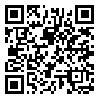BibTeX | RIS | EndNote | Medlars | ProCite | Reference Manager | RefWorks
Send citation to:
URL: http://rjms.iums.ac.ir/article-1-3296-en.html
Background : There is always difficulty and inaccuracy in measurement of blood pressure by conventional method in children. Technical errors, human errors, and incompliance of child during measurements are the main disadvantage. Nowadays, 24- hour ambulatory blood pressure measurements (ABPM) are introduced to apply for children. The aim of this review is to update our understanding on the accuracy, validity and application in children.
Methods: All original articles from 2009 to 2014 in EBSCO, Scholar.google, Pubmed, Cochrane were searched. Review articles, pharmaceutical clinical trials, case reports, and those articles related to adults were deleted.
Results: According to literature studies, ABPM has correlation with the severity of end organ damage, morbidity and mortality. The accuracy and reproducibility of it has been assessed frequently. It is very important and useful to detect hypertension especially in children suffering from chronic disease such as diabetes mellitus, reflux nephropathy, renal transplantation. It helps to discriminate among true hypertension, white coat hypertension and masked hypertension and to detect those with non- dipper statues.
Conclusion: All children with underlying renal disease, diabetes, heart disease, children with history of stroke, myocardial infarction or hypertension in their family members, high office blood pressure, on hypertensive medication and those of dialysis will benefit from regularly assessment by ABPM.





